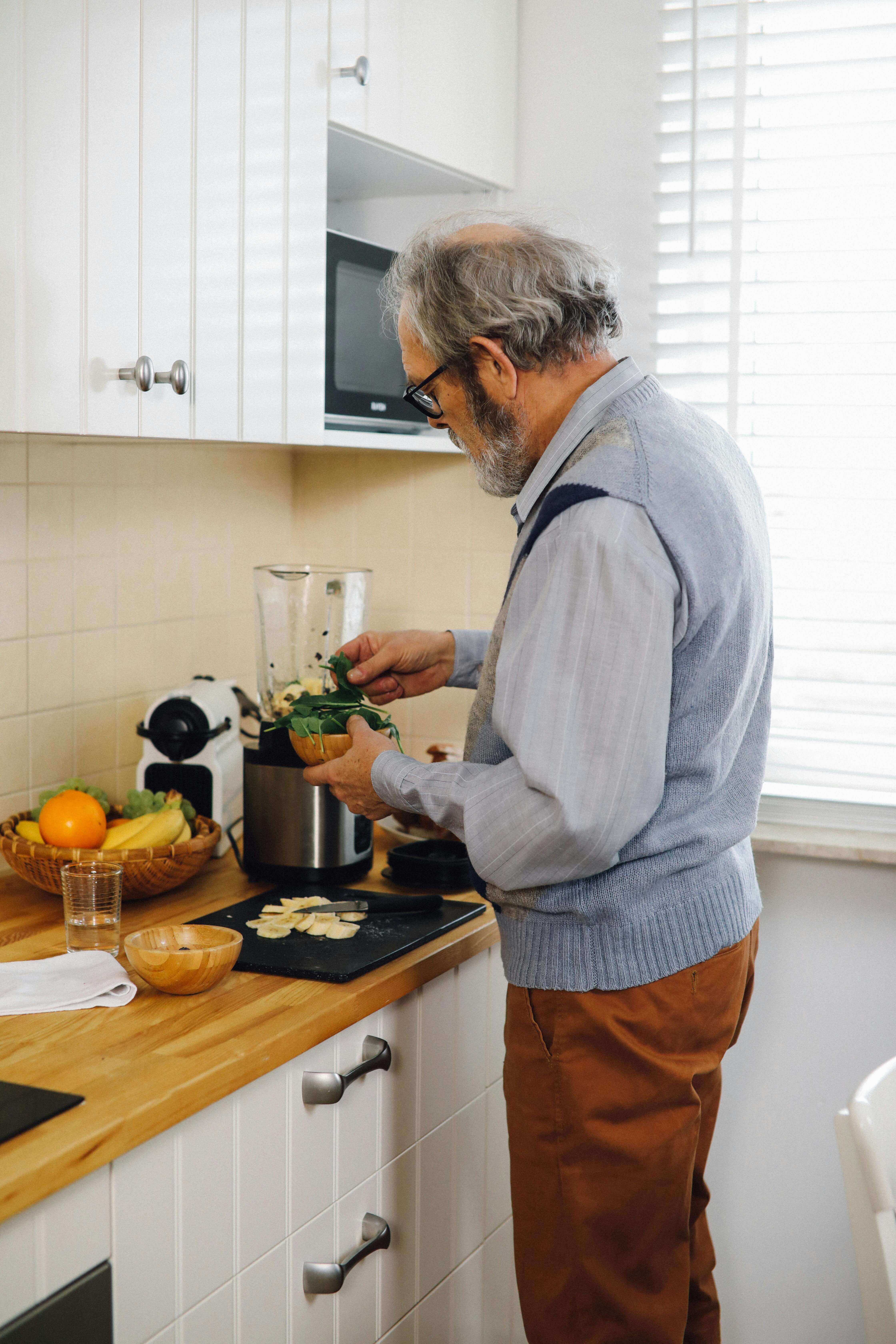Struggling with Meal Anxiety? How Nutrition Counseling Can Help You Eat with Confidence Again
So many of us have been taught to think about food in rigid, rule-based terms. Eat this, not that. Follow these macros. Avoid emotional eating. Control your cravings. The messages come from everywhere. Social media, books, well-meaning doctors, and even friends and family. Over time, it gets to you. The thought of eating makes you nervous. Will there be anything you actually like? Is it even going to feel nourishing? Are you going to feel guilty for enjoying it? Here’s the thing: food is supposed to nourish you, body and mind. It should bring joy, satisfaction, and comfort. When worry takes over, it steals those good moments. Meal anxiety isn’t your fault. The way our culture talks about food makes it so hard to trust yourself and listen to your own needs with care. While society may place a lot of pressure on what we eat, it’s important to listen to your body and make choices that are right for you. That’s where nutrition counseling can help. Nutrition counseling in Raleigh, NC, is all about creating space. It’s not about “fixing” your eating habits or forcing change. It’s about slowing down, tuning in to what you’re feeling, and building a kinder, more balanced connection with food and your body. This way, you can feel the meal anxiety but address it with self-compassion, making choices that align with your values and goals.
 Why Is Meal Anxiety So Common and Often Ignored?
Why Is Meal Anxiety So Common and Often Ignored? 
At first, meal anxiety can be hard to spot. It might show up as overthinking what to eat, stressing about making the “right” choice, or worrying about other people’s opinions. Maybe you feel disconnected during meals or panic when your routine changes. For some, it’s that constant feeling that no food choice is ever good enough. It’s that anxious feeling when you’re trying a new restaurant, testing out new foods, or even just figuring out what to cook at home. It happens more often than we admit, but it’s easy to overlook because diet culture has such a strong hold on how we think about food.
At the core of it all is a common theme, which is feeling out of touch with your body’s signals and needs. And the world around us? It often normalizes, or even celebrates, that disconnection. Nutrition often gets treated like a checklist to manage, but when it turns into a bunch of rules, eating can feel more stressful than supportive. That’s where nutrition counseling in Raleigh, NC, comes in. It helps you tune out the noise and reconnect with a way of eating that feels sustainable and aligned with you. Because you’re the expert on your own experience and body, and you deserve to feel supported in your relationship with food and your well-being.
Reclaiming the Conversation Around Food
In nutrition counseling, one of the first things we do is take a closer look at the ideas and beliefs you’ve picked up about food, your body, and what “nourishment” should mean. We explore the rules you might be following without even realizing it. These can be rules you didn’t choose but were taught, like “Only eat when you’re hungry” or “Food is just fuel.” Thoughts like “I need to control emotional eating” or “Certain foods are bad and should be avoided” can quietly shape how you see yourself and your choices. These beliefs can feel so normal, so automatic, that we don’t even notice them until we stop and reflect. But are they really asking with your well-being in mind? Are they considering what you truly need and want?
These messages can create a lot of internal conflict. Even when you try to eat intuitively, the background noise of judgment and pressure can make it hard to hear what your body is actually asking for. Nutrition counseling gives you space to examine those messages—not to judge them, but to understand where they came from and how they might be shaping your current experience. And from there, we can start to rebuild your relationship with food based on what actually feels good to you.
What Nutrition Counseling Can Look Like (It’s Not a Meal Plan) 
Working with a registered dietitian in Raleigh, NC, isn’t about being handed a list of dos and don’ts. It’s about meeting you where you are, building trust, and working together at a pace that feels right for you. That might mean talking about the spaces where you feel more at ease with food or unpacking the anxiety that comes up in social situations. We could use mindfulness to help you stay present or lean on DBT skills to manage those intense moments. It’s all about creating a space that supports you and your unique journey.
Sometimes, we might even share a snack during a session. This is not to test you but to slow down and notice what comes up together. There’s no one-size-fits-all approach here because you aren’t one-size-fits-all. We move at your pace, intentionally and thoughtfully. Building confidence with food isn’t about forcing yourself through discomfort. It’s about finding ways to feel more prepared and supported. For example, we can come up with plans like checking menus ahead of time before eating out so you’re comfortable with the options and don’t feel anxious about making a decision on the spot. It’s all about creating space for self-awareness and giving you the tools to feel more at ease.
Unlearning Cultural Pressure, Relearning Body Trust
Most nutrition advice out there is all about control. Eat less of what you love. Follow a restrictive diet based on outdated stereotypes. Ignore what your body actually needs. Instead of building trust with your body, these messages just pile on shame and guilt about food. Let’s take a step back. Nutrition counseling offers a fresh perspective. Together, we’ll explore where these ideas come from and how they’ve shaped the way you see food. We’ll ask questions like:
- What does nourishment mean to you—beyond what the culture says?
- What food beliefs feel inherited versus truly aligned?
- How do you want to feel before, during, and after eating?
You are the expert on your own body, even if that expertise has been quieted or overshadowed by outside voices. Nutrition counseling doesn’t replace that knowledge, it helps you tune back into it. With steady support and space for reflection, you can begin to hear your body’s wisdom again. Not through pressure or perfection, but through a process that honors your pace and your lived experience.
Reconnecting with Your Body’s Intuition
Your body is always communicating with you. It could tell you when it’s hungry, when it’s full, and what it might need at that moment. But when anxiety or disordered eating patterns get in the way, it’s easy to ignore those signals and rely on outside rules to decide what or how much to eat. Over time, this can leave you feeling disconnected from your body and its natural intuition. That’s why the focus is on tuning out the noise of external rules and learning to trust your body’s signals again. It’s all about easing meal stress and rebuilding that connection with yourself.
It’s a process, and sometimes it feels slow or frustrating, but it doesn’t have to be overwhelming. We’ll start by exploring how different foods make you feel. Together, we’ll focus on learning your hunger and fullness cues without any judgment and try out what works best for your body. Over time, you’ll start making choices from a place of trust instead of fear or pressure. There’s no pressure to change overnight, but every step towards a more positive relationship with food is worth celebrating. Plus, your registered dietitian will be there and give you room to explore and reconnect with the part of you that already knows how to care for yourself.
Reclaiming the Way You Relate to Food and Yourself
Nutrition counseling is all about changing the narrative, how you see food, nutrition, and, most importantly, yourself. It’s not about following diet culture or trying to change yourself, it’s about building a more positive foundation for your relationship with food and your body. Because emotional eating isn’t something to feel guilty about, and craving comfort or ease doesn’t mean something’s wrong. Food is so much more than fuel. It’s memories, culture, connection, and care. Let’s honor that.
Nutrition counseling is about shifting the way you relate to food, your body, and the stories you’ve been told about both. It’s not about perfect eating or controlling your cravings. Rather, it’s about stepping away from all-or-nothing thinking and moving toward something more sustainable, more kind. Together with a registered dietitian in Raleigh, NC, you’ll have space to explore intuitive eating in a way that actually fits your life. Not as another to-do list, but as a practice of self-awareness and self-respect. This work isn’t about following new food rules. It’s about reconnecting with your own cues, making room for comfort and satisfaction, and creating a relationship with food that reflects your values, not the ones diet culture handed you.
You’re Allowed to Nourish Yourself with Confidence and Ease
It’s easy to feel like nutrition is wrapped up in stress, guilt, or the constant pressure to eat a certain way. But here’s the truth: it doesn’t have to stay that way. You deserve to have a relationship with food that feels natural, flexible, and free from all that noise. You’re allowed to tune into what your body really wants and needs without second-guessing yourself. And you’re allowed to nourish yourself in a way that feels good, without shame or rules holding you back. Plus, here’s the best part: you don’t have to figure it all out on your own. Let’s take this journey together, one step at a time, toward a kinder approach to food and your body.
Compassionate Support with Nutrition Counseling in Cary/Raleigh, Asheville, Hendersonville, & Across NC
Food is personal, and there’s no one-size-fits-all approach. At Nutritious Thoughts, we offer nutrition counseling that puts you in the driver’s seat. It’s about trusting your body, honoring your experiences, and exploring what works for you. No rules, no pressure. Just support, curiosity, and a chance to reconnect with what truly feels right.
With offices in Asheville, Hendersonville, Cary/Raleigh, and virtual services across North Carolina, we make nutrition counseling easy and accessible wherever you are. Whether you’re curious about intuitive eating, overwhelmed by diet culture, or just looking for a more balanced relationship with food, our registered dietitians are here to support you every step of the way. So, why wait? Take the first step:
- Contact us at (828) 333-0096 or email us at info@nutritious-thoughts.com
- Tell us more about yourself
- You’re allowed to want something gentler. Let’s start there—no guilt, no shame, no pressure.
Expanded Counseling Services at Nutritious Thoughts
At Nutritious Thoughts, our support extends far beyond individual counseling. Through our Community Wellness & Education programs, we engage with schools, workplaces, and recovery centers to bring tailored nutrition counseling, workshops, and educational presentations directly to your community. Whether delivered on-site or virtually, our goal is to provide accessible wellness tools where they can make the greatest impact. Reach out to learn more about our services and pricing.


































